A new bet on private hospitals
News Category: News, Community News, General Discussion, and Health/Fitness
-
Published September 30th, 2021
Fifteen years ago, Miguel Khoury saw his mother’s health deteriorate and she had to spend a night in the hospital in Celaya, Guanajuato. At the hospital, she received care that did not meet her expectations: poor staff disposition, dirty facilities, medicines were not given at the right time and, in the end, the amount of the bill was exorbitant, for products that had not even been consumed. It was at that moment when an idea was born in the entrepreneur’s mind.
Miguel told his father: “Celaya deserves to have a good hospital. I’m going to build one. He asked me: ‘What do you know about hospitals?’ I told him: ‘I don’t know anything, but I’m going to do it. That’s how Médica Avanzada Celaya (MAC) was born, but I never thought that this would be such an important business,” recalls the firm’s director in an interview.
Many doctors and experts told Miguel that he would not be able to succeed with the operation of his first hospital, but he did not back down; he continued with the project. Today, the hospital chain aspires to become the second-largest, by the number of locations, in Mexico.
By 2025, the company plans to add 20 establishments to its portfolio of locations in Mexico. The hospital chain plans to build and open hospitals in Querétaro, Mexico City, León, and Los Mochis, while it recently acquired the Cemain hospital in Tampico, Tamaulipas, in addition to opening its second location in Aguascalientes.

Currently, Hospitales Ángeles, owned by businessman Olegario Vázquez Aldir, has 26 hospitals in the country, while Star Medica, of which Carlos Slim is a partner, has 14 hospitals.
The firm has obtained resources from the financial markets. In October 2020, MAC debuted in the debt market with an issue of 500 million pesos on the Bolsa Institucional de Valores (Biva), while on July 15, it issued its second stock certificate for 1,500 pesos with the ticker symbol Salud 21. The next step in the company’s roadmap is to carry out an IPO (Initial Public Offering) to sell MAC shares in the domestic market, as was done by Médica Sur, and even venture into the international market. For this reason, the firm’s route has been to institutionalize itself over the last few years.
“We want to take on debt, with very reasonable financial operations. We do not contemplate owing more than 2.5 times our Ebitda”, says the businessman, who believes that between 2023 and 2024 a share placement could already be considered.
The pandemic has already shown, once again, the need to attend to and invest more in the health sector, but it is only the symptom of a greater demand that seems to be looming, given the trend of the Mexican population’s increasing average age.
“Today, there are 35 elderly people for every 100, when before there were five or six. What is happening with the hospitals? […] What MAC wants to do is to make its hospitals specialized according to the area of the country”, explains the businessman, who believes that the business focus should be oriented towards preventive medicine.
However, the challenge for MAC and the rest of the hospitals is to overcome the deficit of medical personnel and to be accessible to a greater number of people throughout the country. The public health system alone reports a shortage of 200,000 doctors and 300,000 nurses, according to the Ministry of Health. “The challenge is not to raise the money, buy the equipment, glue the bricks in the building, but to train the personnel,” says the company’s founder, who explains that the implementation of its first nursing school has already begun in Aguascalientes and that the plan is to have an educational center of this type in each city where the company operates.
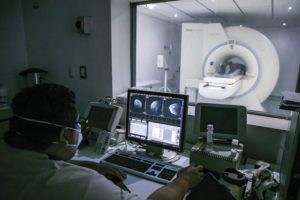
A textile entrepreneur
Miguel Khoury was born in Celaya, Guanajuato, 52 years ago. At a very young age, the entrepreneur began working in his family’s textile business, where his father made sweaters.“I felt the vocation to become a doctor… and I couldn’t become a doctor, because when I passed my medical exam, my father told me: ‘No, if I’ve been making you a factory for 40 years, then you can stay and work with me’. Once upon a time, people did what their parents said and did not argue. However, that little bug of being a doctor stayed with me somewhere,” says the Business Administration graduate.
Today, MAC’s founder walks around his office, located in his hospital in Mexico City. In a way, he has recovered with some of his concerns as the doctor he could have been, but he always recognizes himself as an entrepreneur.
In 2005, Khoury began the construction of his first hospital unit, which opened its doors in 2008, and later acquired a hospital in Aguascalientes, for which his name has undergone a modification, although it has kept its acronym and is now Médica Avanzada Contigo (MAC).

In 2016, Hospitales MAC received financing from an investment fund managed by Actinver, which owns 25% of its capital, and a foreign fund. This is how corporate governance was established and independent directors joined the company, such as Cosme Torrado, co-founder, and member of the Board of Directors of Alsea; Héctor Madero, president and CEO of Actinver; and María Ariza, CEO of Biva, to mention just a few of them.
Gradually, the openings continued: Irapuato, Guadalajara, San Miguel de Allende, Puebla, Mexicali and Mexico City.
The hospital to the south of the country’s capital is an acquisition of a functional operation, which gives the group visibility in the national market.
One of the objectives is for the hospital chain to be recognized for its vocation for teaching, as a trainer of qualified medical personnel and a participant in research agreements.
Generational change
The opportunity that MAC has found in the hospital market is that of a generational change of founding doctors of some hospitals in the Mexican Republic to heirs of these businesses, who do not know or are not involved with the business of the establishments founded in the past.The business group’s plan is based on growing through acquisitions, mainly, and the rest through the construction of new facilities.
Today, MAC has nine hospitals in operation and is expected to have 15 by 2022, with 600 beds, i.e., double the current number of this hospital chain.
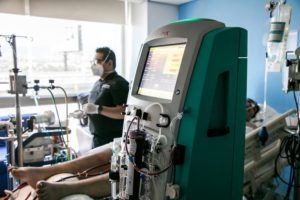
Our service vocation is to be present in cities with more than 500,000 inhabitants. For this reason, growth continues to be oriented towards the interior of the country and not only in Mexico City or the Bajío region.
The investment in hospitals ranges from 1,000 million pesos to 300 million pesos, depending on the city and whether it is acquired or built.
Miguel Khoury accepts that the company has also considered growing in international destinations and, in this sense, it would be viable to analyze operations in the United States in order to acquire a hospital.
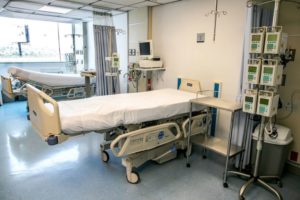
“They have a great need, in the United States, for quality services; and you may think that they are better there, but no. The service we provide in Mexico is much better. The service we provide in Mexico is much better,” says the Guanajuato native.
In 2020, business sales were affected by people’s fear of attending hospitals, which caused medical procedures other than the SARS-Cov-2 coronavirus to be postponed.
“Many think Covid-19 was a great opportunity for hospitals. It just meant that your Covid billing went up, but it went down at other points. For example, it was the year we had the fewest surgeries,” says the entrepreneur.
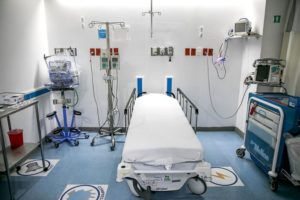
Currently, the firm’s plans are focused on standardizing the rest of its services and thinking about future growth. By next year, MAC expects to have a workforce of almost 4,000 employees.
Miguel Khoury looks back on the company’s development and continues to be amazed at what it has achieved so far, but wants to make an impact beyond the business. “It is not only about growing in the number of units, selling more or attending more patients, but we want to grow with quality and we want to contribute to the development of the country.”
-

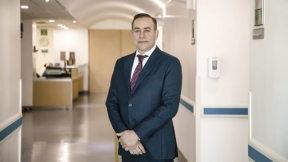
Leave a Reply